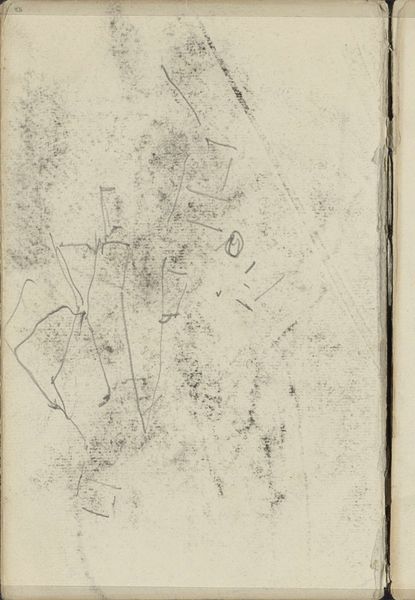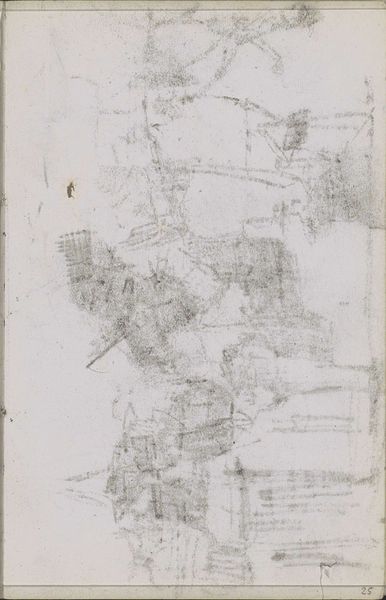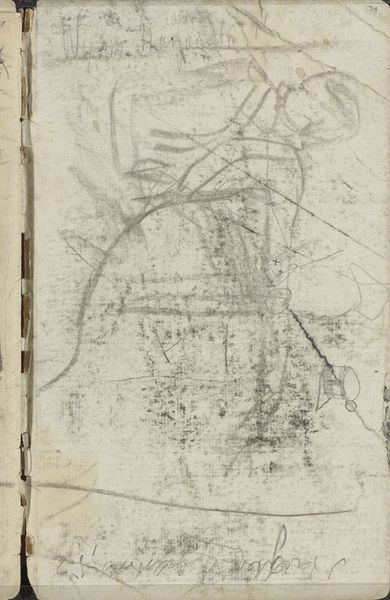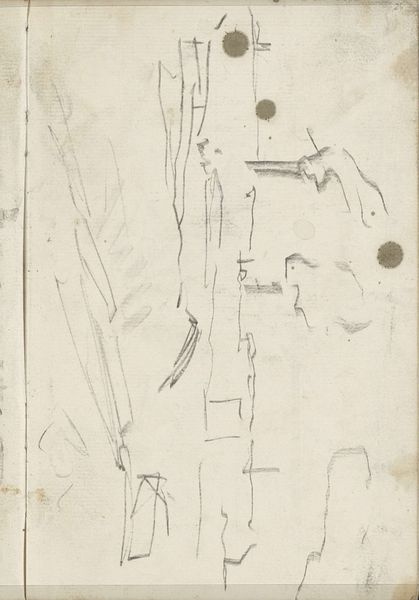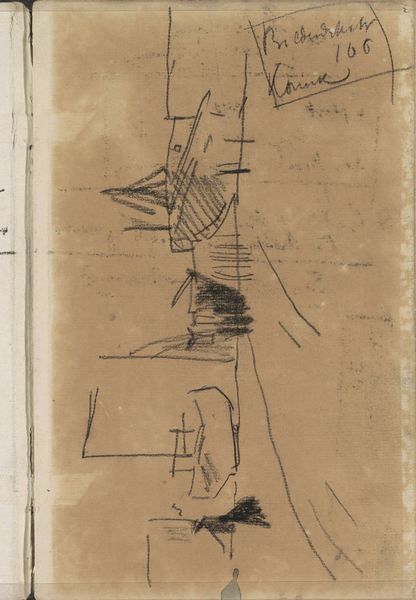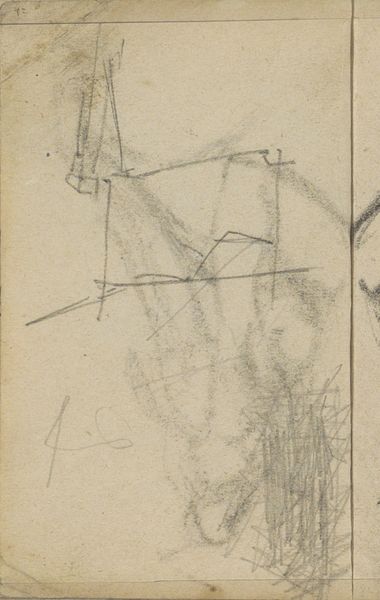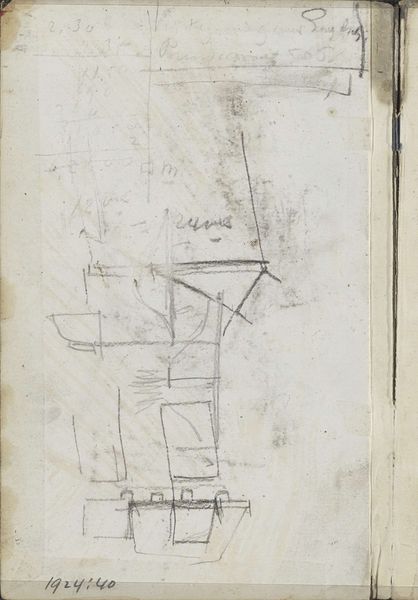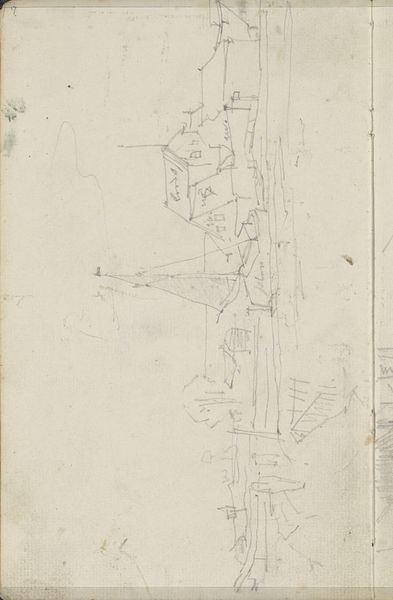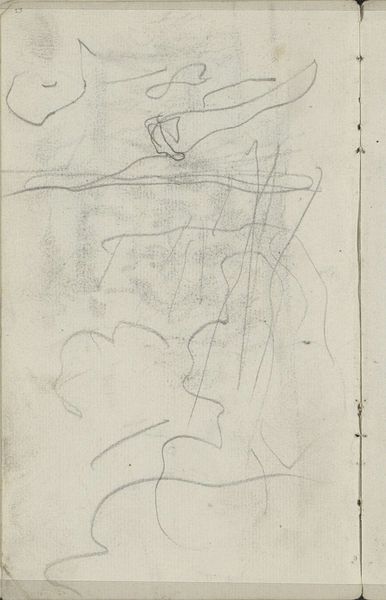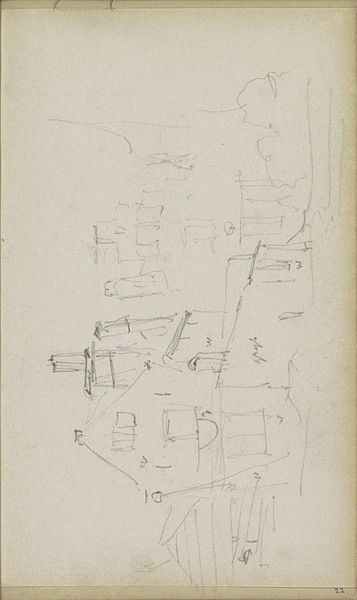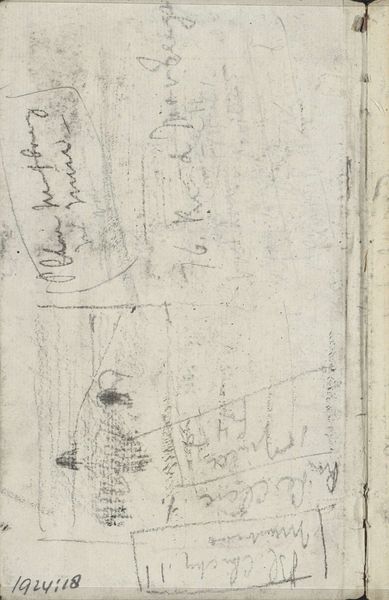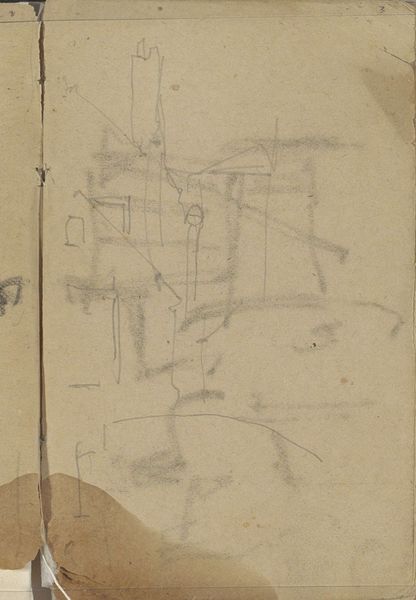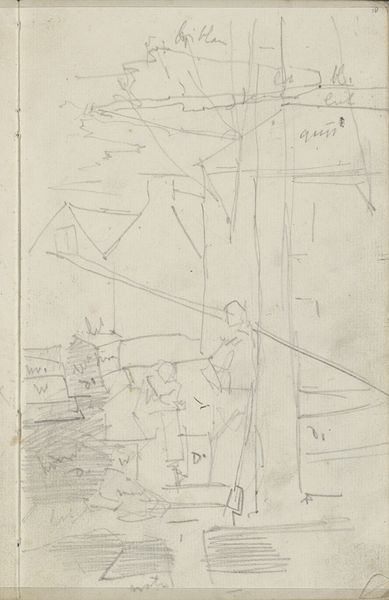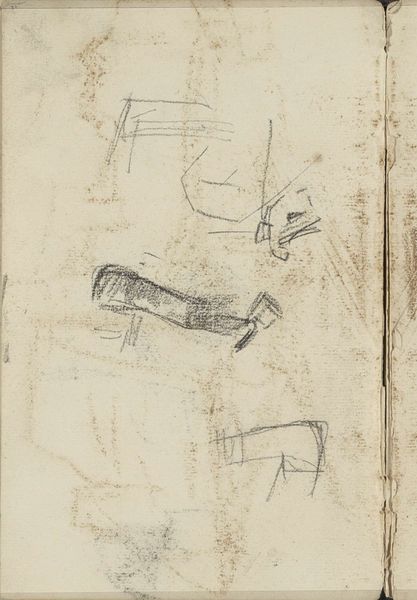
#
amateur sketch
#
aged paper
#
hand written
#
sketched
#
sketch book
#
incomplete sketchy
#
hand drawn type
#
personal sketchbook
#
sketchbook drawing
#
sketchbook art
Copyright: Rijks Museum: Open Domain
Curator: Here we have "Studie," a sketchbook page from George Hendrik Breitner, created sometime between 1887 and 1889. Editor: My initial impression is a feeling of fragility, or maybe it’s impermanence. The faint lines and the aged paper convey such delicacy. It's clearly a preliminary work. Curator: Indeed. Breitner is celebrated for his gritty depictions of Amsterdam, but what often gets missed is the intensive study and preparatory work that went into those canvases. This is a page plucked from a personal sketchbook offering a rare glimpse into his process. Editor: The rawness is striking. There's none of the gloss we often associate with finished artworks destined for gallery walls or wealthy patrons. It's immediate, direct. What is interesting is how the bareness can point to wider, political concepts on labour and work ethics that came in as society modernized in the nineteenth century. Curator: Absolutely. This sketchbook leaf disrupts the notion of the artist as a detached genius effortlessly producing masterpieces. Breitner's urban scenes weren’t just stumbled upon; they were constructed through observation and careful planning, evidenced here. The sketch suggests a rapidly captured moment—maybe the infrastructure or outlines of buildings along an Amsterdam canal, but rendered with minimal detail. Editor: It almost feels like resistance to the polished artwork promoted by art institutions back in the day. Here is Breitner actively engaging with a specific context with an accessible visual language for people, not just appealing to art critics! Curator: I agree. Breitner often prioritized realism over idealization. He wasn’t concerned with painting a sanitized version of city life; he captured it in its complexity, as seen here as he began conceptualizing it, but would eventually paint it. And remember the social upheaval in Europe at the time and in Amsterdam: Breitner showed empathy for workers as it transitioned to industrialized times. This sketchbook is a fascinating insight into how such a position was formed, and materialized. Editor: This is a potent reminder that art isn’t just about the final product, it’s about the journey, the questioning, and the labor involved. Breitner's page encourages a more critical look at art production, class, and the way these are exhibited at elite art institutions. Curator: Thank you, that gives me a new way to view Breitner’s sketches! Editor: Thanks to you too, this was really insightful and an insightful exchange on social change and artistic expression.
Comments
No comments
Be the first to comment and join the conversation on the ultimate creative platform.
